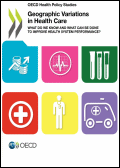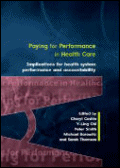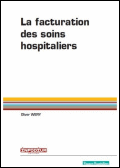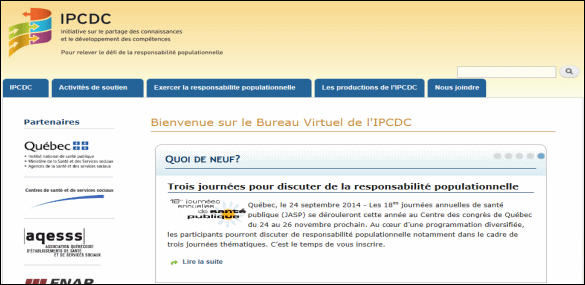 LU POUR VOUS D'OCTOBRE 2014 :
LU POUR VOUS D'OCTOBRE 2014 :
 livres du mois
livres du mois
 sites du mois
sites du mois
 Doc veille
Doc veille
Tous les lu pour vous
LES LIVRES DU MOIS

La santé pour tous ?
Polton D.
Paris : La Documentation française, 2014
Tantôt présenté comme le meilleur du monde, tantôt jugé inefficace, inégalitaire, dispendieux et à réformer d'urgence, qu'en est-il exactement du système de santé français ? Sa refonte, prévue par la loi santé, au printemps 2015, devrait en priorité réduire les inégalités de santé et d'accès aux soins. Quelles sont donc les forces et les faiblesses de ce système de santé ? En quoi est-il différent de ceux des autres pays européens ? Quels enseignements en tirer ? Comment tendre vers davantage d'efficacité et de justice alors que de nombreux défis restent à relever : vieillissement de la population, augmentation des maladies chroniques et dégénératives, fortes disparités sociales et régionales. Pour répondre à ces questions, ce nouveau titre de la collection Doc' en poche propose l'analyse d'un spécialiste du secteur et présente les principales pistes de réformes envisagées (4e de couverture).
Geographic Variations in Health Care: What Do We Know and What Can Be Done to Improve Health System Performance?
Organisation de Coopération et de Développement Economiques. (O.C.D.E.). Paris. FRA
Paris : OCDE, 2014
Geographic variations in health care use across and within countries have been widely documented, for a limited number of countries including the United States, Canada, the United Kingdom and Nordic countries. While some of these variations reflect differences in patient needs and/or preferences, others do not. Instead, they are due to variations in medical practice styles, the ability of providers to generate demand beyond what is clinically necessary, or to unequal access to health care services. These unwarranted variations raise concerns about the equity and the efficiency of health systems. This report presents new information on geographic variations in health care utilisation within and across 13 OECD countries: Australia, Belgium, Canada, the Czech Republic, Finland, France, Germany, Israel, Italy, Portugal, Spain, Switzerland and the United Kingdom (England). The analysis focusses on a selected set of high-volume and high-cost health care activities. Data are reported for the most recent year (often 2011) and sometimes for several years, allowing some analysis of trends. Health care utilisation is recorded at the patient's place of residence. Hence, the level of use in a given area cannot be explained by patients receiving treatment in other geographic areas. Utilisation rates have been standardised by age and sex to remove the effect of differences in population structures. The report considers possible causes of these variations and explores health policies expected to reduce unwarranted variations. A chapter provides an overview of the major policy instruments used in France for tackling variations in medical practice.
Paying for Performance in Health Care : implications for health system performance and accountability.
Cashin C. / éd., Chi Y.L. / éd., Smith P. / éd., Borowitz M. / éd., Thomson S. / éd.
Maidenhead : Open University Press, 2014
Health spending continues to outstrip the economic growth of most member countries of the Organisation for Economic Co-operation and Development (OECD). Pay for performance (P4P) has been identified as an innovative tool to improve the efficiency of health systems but evidence that it increases value for money, boosts quality or improves health outcomes is limited. Using a set of case studies from 12 OECD countries (including Estonia, France, Germany, Turkey and the United Kingdom), this book explores whether the potential power of P4P has been over-sold, or whether the disappointing results to date are more likely to be rooted in problems of design and implementation or inadequate monitoring and evaluation. Each case study analyses the design and implementation of decisions, including the role of stakeholders; critically assesses objectives versus results; and examines the “net” impacts, including positive spillover effects and unintended consequences. With experiences from both high and middle-income countries, in primary and acute care settings, and both national and pilot programmes, these studies provide health finance policy-makers in diverse settings with a nuanced assessment of P4P programmes and their potential impact on the performance of health systems (4e de couverture).
La facturation des soins hospitaliers.
Wery O.
Paris : Editions Infodium, 2014
Ce livre apporte un éclairage global sur les activités de la facturation des soins et leur finalité ; • Connaître en détail les multiples opérations qui concourent à la facturation et au recouvrement des frais de soins ; • Mieux connaître le travail réalisé au bureau des entrées pour le valoriser et l'accompagner pour l'avenir ; • Comprendre les mécanismes de remboursement des frais de soins par les régimes de Sécurité sociale et les organismes complémentaires ; • Passer en revue la multitude de tarifs ainsi que les règles de tarification, notamment en soins externes ; • Réorganiser et sécuriser la chaîne de facturation des soins ; • Comprendre les enjeux de la facturation directe des soins à l'Assurance Maladie pour mieux la préparer.

The Elgar companion to health economics.
Jones A.M.
Cheltenham : Edward Elgar Publishing, 2012
The aim of The Elgar Companion to Health Economics is to take an audience of advanced undergraduates, postgraduates and researchers to the frontier of research in health economics, by providing them with short and easily readable introductions to key topics. The second edition brings together 54 chapters written by more than 90 leading international contributors. The contributions to the Companion are concise and focus on specific concepts, methods and key evidence. The Companion is a comprehensive and authoritative original reference volume covering theoretical and empirical issues in health economics with a balanced range of material on equity and efficiency in health care systems, health technology assessment and issues of concern for low and middle income countries. It is organised into two broad sections. The first deals with the economics of population health and of health care systems, analysed with both equity and efficiency goals in mind. The second covers the conceptual and practical issues that arise in the evaluation of health care technologies: most often applied to pharmaceuticals but also relevant for other interventions. Many of the contributions address topical and policy-relevant issues including: the economic causes of the growth of obesity in the West, the link between illicit drug use and crime, the consequences of leaving people uninsured against the costs of health care, the impact of globalisation on the international trade in health care services, the role of informal payments in many health care systems, what equal treatment for equal needs means in practice, whether direct-to-consumer advertising of pharmaceuticals is desirable, and how economic evidence is influencing the way that new technologies are made available to patients. Other chapters stress the research done by health economists to develop theoretical models and empirical methods that illuminate the workings of health care systems (Résumé de l'éditeur).

Advances in Health Care Organization Theory.
Farnsworth S.S. éd./, Shay P.D. éd./
San Franscisco : Wiley - Jossey-Bass
Advances in Health Care Organization Theory, 2nd Edition, introduces students in health administration to the fields of organization theory and organizational behavior and their application to the management of health care organizations. The book explores the major health care developments over the past decade and demonstrates the contribution of organization theory to a deeper understanding of the changes in the delivery system, including the historic passage of the Patient Protection and Affordable Care Act of 2010. Taking both a micro and macro view, editors Stephen S. Mick and Patrick D. Shay, collaborate with a roster of contributing experts to compile a comprehensive volume that covers the latest in organization theory. Topics include : Institutional and neoinstitutional theory ; Patient-centered practices and organizational culture change ; Design and implementation of patient-centered care management teams ; Hospital-based clusters as new organizational structures ; Application of social network theory to health care.
LES SITES DES MOIS D'OCTOBRE
Bureau virtuel de l'IPCDC
http://ipcdc.qc.ca/
Presentation
L'IPCDC (Initiative sur le Partage des Connaissances et le Développement des Compétences) est un consortium dont le but est de soutenir les organisations et les acteurs du système de la santé et des services sociaux (SSSS) ainsi que leurs partenaires intersectoriels qui exercent la responsabilité populationnelle sur les territoires de santé du Québec. Pour ce faire, l'IPCDC contribue au développement des compétences, sur les plans individuel et organisationnel, tout en misant sur le partage des connaissances et des expériences. Son site présente ses activités de soutien et offre des outils pour réaliser un projet en lien avec la responsabilité populationnelle (fiches thématiques, publications, outils de veille, données probantes, statistiques...)
Espace Partagé de Santé Publique
www.epsp06.fr/faccueil.html
Presentation
L'Espace Partagé de Santé Publique est conçu comme un espace ouvert, fédératif, de partage de connaissances et d'expériences dans le but de promouvoir des réponses innovantes aux problématiques complexes qui mobilisent le système de santé (vieillissement de la population, santé mentale, inégalités sociales de santé, maladies chroniques, dépendance et handicap,…). Il rassemble les institutions et organismes des Alpes-Maritimes oeuvrant dans le champ de la santé publique. Son site présente ses activités (formation, colloque, aide à la décision études et recherche).
DOC VEILLE : VEILLE BIBLIOGRAPHIQUE EN ÉCONOMIE DE LA SANTÉ 
Les working papers ont été remplacés par La Doc Veille
Réalisée par les documentalistes de l'Irdes, Doc Veille rassemble de façon thématique les résultats de la veille documentaire en économie de la santé : articles, littérature grise, rapports…




